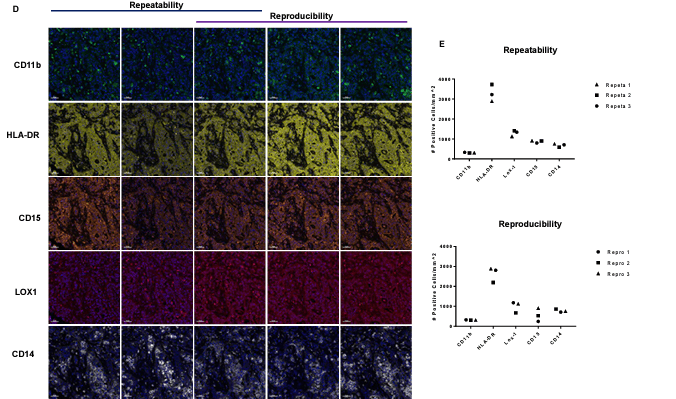Poster – The Complexity Of Myeloid-derived Suppressor Cells In Non-Small Cell Lung Cancer: A Combinatorial Multiplex IHC And Flow Cytometry Approach
Lung cancer is the leading cause of cancer deaths worldwide. Non-small cell lung cancer represents the majority of lung cancer cases and can be divided into further pathological subtypes: large cell carcinoma, adenocarcinoma, and squamous cell carcinoma. The architectural and genetic profiles of these subtypes vary as well as their immune cell composition and function. Myeloid-derived suppressor cells are immature myeloid cells that are pro-tumor through their suppression of innate and adaptive immunity. Increased MDSC have been reported in the circulation of NSCLC patients and correlated with poor response to treatment and disease progression.
MDSC are heterogenous and the phenotyping is complex. Until now, MDSC has been analyzed primarily by flow cytometry or with limited markers in immunohistochemistry (IHC). Multiplex IHC offers the possibility of visualizing the MDSC within the tumor environment with the high level of phenotyping required to identify the different subpopulations.
In this poster you can discover how our team of experts compare MDSC populations in NSCLC subtypes with our HISTOPROFILE® -MDSC multiplex immunofluorescence panel on FFPE tissue resections and in paired peripheral blood samples by flow cytometry.
Poster – The complexity of myeloid-derived suppressor cells in non-small cell lung cancer A combinatorial multiplex IHC and flow cytometry approach

Reach out to our experts and discover how we can help you advance your clinical trial

